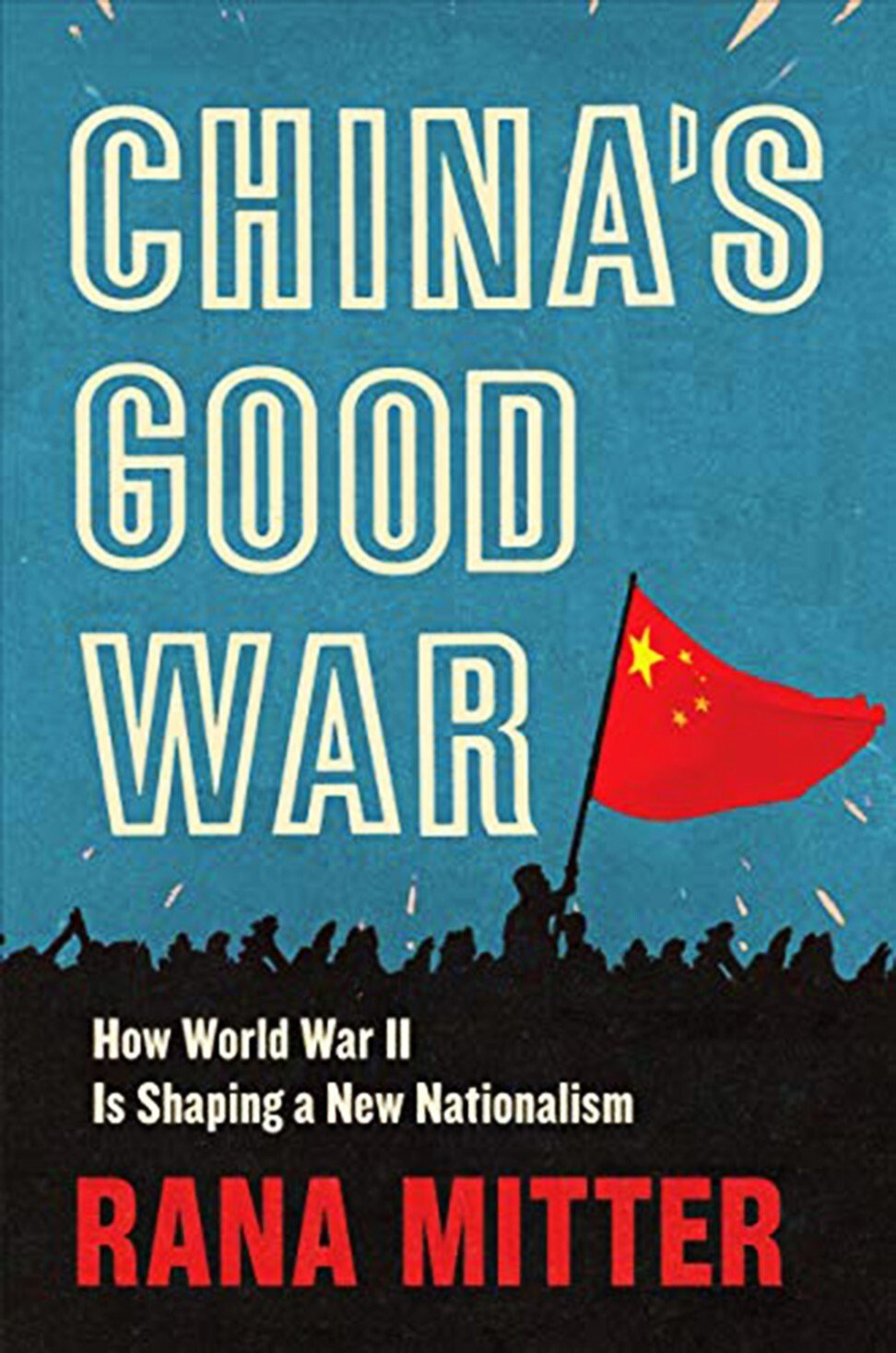
Review | China’s Good War: Rana Mitter explores how national – and nationalist – narratives shape history
In his latest book, Rana Mitter, director of the China Centre at Oxford University, plots the diverging course of China’s World War II narrative, which has shifted to portray the nation as strong and victorious
China’s Good War by Rana Mitter, Belknap Press. 4/5 stars
Having been all things to all people, The War has inspired shelves of novels, endless movies and constant references to the “greatest generation” or the “Blitz spirit”. But despite our seeming obsession with the conflict, no definitive World War II has emerged.
China’s Good War: How World War II is Shaping a New Nationalism is essentially Rana Mitter’s companion volume to his concise, valuable 2013 book, China’s War With Japan, 1937-1945, which placed China in its rightful place as a victorious Allied nation and highlighted its devastating eight long years of all-out war.

In Britain, America and the Soviet Union, the national myths of wartime endurance, sacrifice and victory at enormous cost were firmly fixed by 1945. China, however, has taken longer to develop its historical narrative, according to Mitter, professor of history at Oxford University, where he is director of the China Centre.
Indeed, The War was little spoken of officially until the 2015 Beijing parade commemorating the 70th anniversary of the conflict’s end. After 1949, the overarching story was of Nationalist failure and betrayal necessitating revolution – a Sino-Japanese war somewhat apart from the rest of World War II.
Then, at the height of Maoism, the narrative focused on communism and anti-imperialism before shifting, during Deng Xiaoping’s reforms, to a “peaceful rise”. However, given that China has now “risen”, a new storyline is effacing the long-standing notion of Chinese weakness during the opium wars, the collapse of the Qing dynasty and the chaos of the warlord era.
As Mitter says, at this juncture of renewed ascendancy, The War provides China, “as it does for the other former Allied belligerent nations, an opportunity to portray the nation as both strong and victorious, as well as morally righteous”.
So where are we now? Until recently it seemed that China was pushing a story of reconciliation linked to wooing Taiwan into reunification and easing rows with Japan as the Cold War receded. This, Mitter writes, allowed for a narrative that “presents the war as a time of clear moral contrasts, in which noble Chinese patriots, both Communist and Nationalist, fought against Japanese devils”.
But now it’s all changed again. China’s Good War is clear that national narratives are rarely based on historical scholarship, but rather on external politics. The more all-embracing analysis of Allies fighting together in the common cause, while highlighting the terrible suffering of the Chinese people, suited the late 20th- and early 21st-century realpolitik.
Mitter believes China’s current wartime narrative sees the country’s role primarily as a victorious ally (and the only major Asian ally), which cements Beijing’s new standing globally while simultaneously challenging America’s long-running boast of having “liberated” the Asia-Pacific region.
As China becomes more powerful, the world will have to pay more attention to the stories that it wants to tell
It’s tempting to believe that the public doesn’t care about how historical narratives play into contemporary politics. The stories people respond to are invariably about individual lives rather than national objectives. When Christopher Nolan’s Dunkirk opened in China in 2017, official reaction was lukewarm. The state media highlighted that Dunkirk was a defeat for the Allies and didn’t conform with “Chinese values” of victory at all costs (i.e. go see Wolf Warrior 2 instead). Still, Dunkirk did well at the box office, scoring high on less bombastic fan sites.
In July, when cinemas reopened in China, Sam Mendes’ World War I film, 1917 , a saga of ordinary men charged with impossible orders, topped the box office.
And director Guan Hu’s Shanghai-set war movie The Eight Hundred – shelved in July last year because of its seemingly over-the-top elevation of the sacrifices of the Nationalist army – has done phenomenally well. The film, finally released last month (with some cuts), had audiences responding favourably to what they interpreted as a tale of doomed Chinese heroism.
Official narratives may not then always be the people’s narratives. Public reactions can be more nuanced and visceral than the censors might care to think. Still, as Mitter concludes: “As China becomes more powerful, the world will have to pay more attention to the stories that it wants to tell.”

